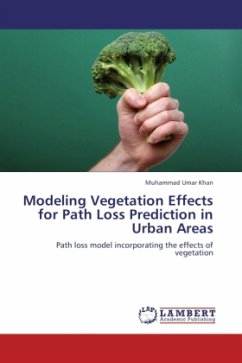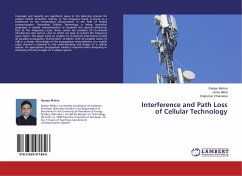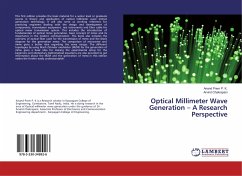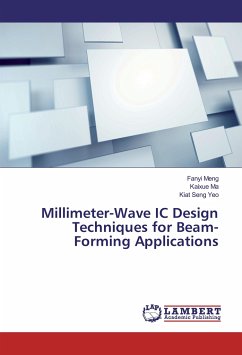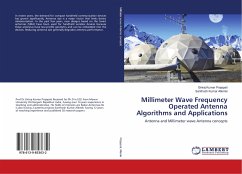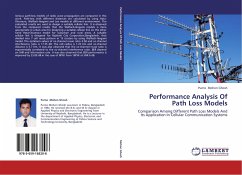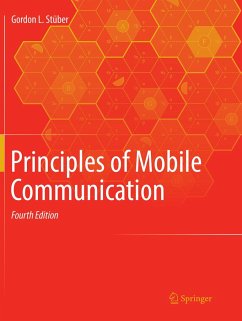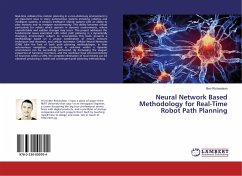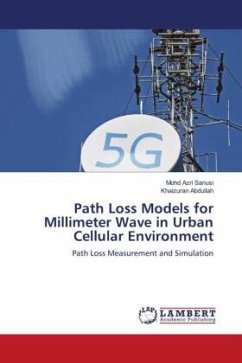
Path Loss Models for Millimeter Wave in Urban Cellular Environment
Path Loss Measurement and Simulation
Versandkostenfrei!
Versandfertig in 6-10 Tagen
29,99 €
inkl. MwSt.

PAYBACK Punkte
15 °P sammeln!
Cellular communication has become very important nowadays. It becomes obvious when the era of smartphones is everywhere used by people. However, no matter how good the smartphones are, still, they depend on how efficiently the service providers can provide the coverage signal. The frequency of a millimeter wave is defined from 3GHz to 300GHz, thus the wavelength range is from 1 mm to 100 mm. Due to the short wavelength, some parameters need to be determined for various environments. Path loss is a considerable factor that determines the cell size as well as the reach distance. The millimeter w...
Cellular communication has become very important nowadays. It becomes obvious when the era of smartphones is everywhere used by people. However, no matter how good the smartphones are, still, they depend on how efficiently the service providers can provide the coverage signal. The frequency of a millimeter wave is defined from 3GHz to 300GHz, thus the wavelength range is from 1 mm to 100 mm. Due to the short wavelength, some parameters need to be determined for various environments. Path loss is a considerable factor that determines the cell size as well as the reach distance. The millimeter wave has a high path loss compared to the lower frequency that has a larger wavelength. This characteristic is very important to be focused on because, in mobility conditions, small-scale fading and large-scale fading phenomena give a very critical impact on the performance of 5G services. The book reviews various topics in indoor and outdoor measurements for determining the path loss models which are Closed-In Reference and Alpha-Beta-Gamma Models. The methodology consists of the experiment and Matlab simulation. Finally, the results of the path loss models are obtained and analysed.



